Childhood in a Foreign Country: Exploring the "Secret" behind Education in a Foreign Country
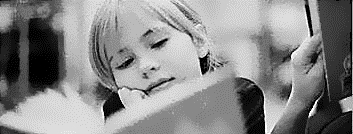
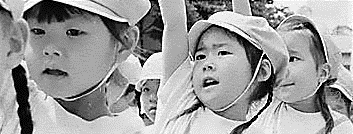
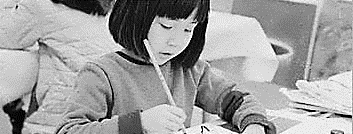
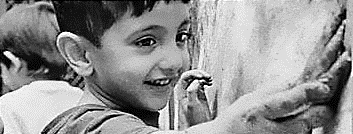
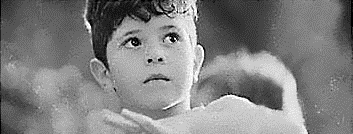
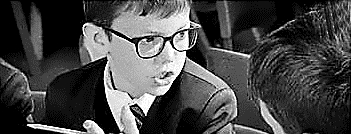
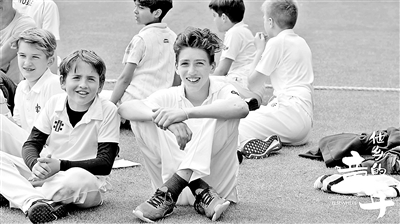
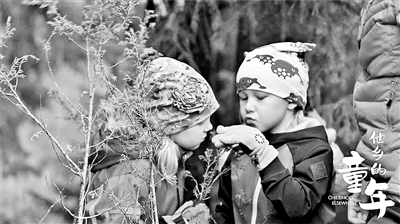
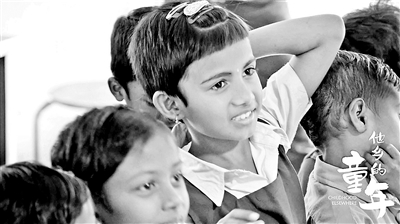
Recently, a 6-episode documentary "Childhood in a Foreign Country" has exploded the circle of friends. At present, four episodes of Japan, Finland, India and Britain have been broadcast, with Youku ranking first and Douban scoring above 9.2.
When planning to shoot Childhood in a Foreign Country, Zhou Yijun hoped to find a "perfect childhood". After filming, she said, "Every place has its own strengths … …”
Zhou Yijun once witnessed and recorded the war in the Middle East, but now, as a mother of two children, she is on the road again, and with her own confusion and thinking in the process of parenting, she travels abroad to explore the "secret" behind education. After a year, she completed Childhood in a Foreign Country across six countries in Eurasia.
Li Shuang, the author of this article, often lives in London, and both her daughters study in private schools in London. She has a lot of research experience in British private education, and has a lot of contacts with Zhou. She is also one of the guests interviewed in "Childhood in a Foreign Country" and "English Chapter". After watching the four episodes that have been online, she can’t help thinking about what British education can learn from and what a mother can use to demand herself and understand her children … …
We think that the author’s introduction and thinking at least provide a sample that can be compared, used for reference, reflected and even criticized for domestic readers who care about the next generation of education, don’t they?
— — compiler
Japan
Collective spirit goes deep into the blood, and words and deeds are cultivated from kindergarten … …
The acme of Japanese education has an extremely traditional oriental concept and Zen meaning: moistening things silently.
In the indoor gymnastics hall of Lotus Kindergarten in Japan, the teacher took the children and shouted one, two, three and four, practicing the "sitting" of standing up, kneeling and standing up again. Zhou Yijun asked: "Why do you have to train this kind of voice from the abdomen since childhood, and why do so many people shout together?" The director replied: Japan is a nation that pays attention to strict discipline. The so-called discipline is a rule for the good operation of society, and the ideal state is that children take the initiative to abide by it. He also explained the concept of "collective resonance": everyone makes his own voice instead of the same one, and there is a response between these voices, which leads to resonance.
It seems that Akita passed on these ideas by choosing a very traditional form of physical fitness. In Lotus Kindergarten, children will have an hour’s morning exercise when they get up early, running around barefoot on the ground, shouting, doing exercises, running, climbing poles and playing games in the courtyard, and being encouraged to wear thin clothes. Kindergarten also had a history of letting children "topless" for 60 years, which was later suspended under the pressure of public opinion. The director of Lotus Kindergarten said: Morning time is very important, so we should make full use of this time, adjust the rhythm of our body, radiate and burn our energy, and feel the awakening of life in our body.
In the documentary, the classroom of another rattan kindergarten has a door with a rubber edge that will not completely close automatically, but will leave a gap unless it is closed carefully again. In winter, there will be wind coming in this crack, and the children at the door will feel cold, so they must go back and close it carefully again. Director Kato Kiichi explained: "This makes children understand that things should be done thoroughly and the last step should be taken." This can be called "doing things rigorously and beautifully" — — Characteristics of Japan; But it can also be interpreted as "the pursuit of perfection is to not cause trouble to others and to make the team better."
Therefore, not all parents now fully accept the characteristics that look very "Japanese". In the camera, Mr. Taihe Tianji, head of the international business department of Japan Radio International, will say: "I am a little worried about studying in Japanese schools, and my personality is gone. A child as young as him (son) has many choices, and I hope he can find his own future. "
Before 2019, preschool education was not a part of compulsory education in Japan, so kindergartens were all private and enrolled children aged 3 to 5. In addition to kindergartens, there are day-care classes, starting from the age of six months and ending at the age of five. Every day-care class and kindergarten has different educational demands, some of which are for preparing for the entrance examination of private primary schools, while others simply provide space for playing games. Therefore, a Japanese kindergarten guide for foreign parents suggested: "Japanese local Kyoiku mamas (equivalent to ‘ Tiger mother ’ ) will put their children in the most popular kindergarten and send them to preschool classes to learn math and Japanese after school. "
In Japan, mothers almost undertake all the family and child-rearing work. If nothing else, the preparation for kindergarten alone is very complicated. Kindergartens have a long list of daily necessities that need to be purchased, including work clothes, cushions, fitness bags, indoor shoes bags, piano bags, lunch boxes, toothbrushes, napkins, crayons boxes (each of the 12 crayons in the box must be labeled), notebooks, glue and scissors, etc. All the above things must be sewn or ironed with name labels and class names (if the class changes in the second year, it will be repeated). Every day, mothers also bring healthy lunches to their children, which turns into another invisible competition.
In fact, keeping fit, maintaining collective honor and not causing trouble to others are also emphasized concepts in British education, but the British do not insist on consistency as the Japanese do, especially now that Britain is becoming more and more diversified, and different ethnic groups live under the same roof, so respecting other ethnic groups and religions has become the top priority in education: for example, you can skip some physical education class or even biology classes for religious reasons, and you can also take your own national holidays during daily school hours. Primary and secondary schools in London often ask for leave from October every year, so other students are familiar with the Jewish New Year, the Indian New Year and, of course, our China New Year.
Finland
Competition is not encouraged, there is no grade, and courses are selected one day a week … …
Finland’s "relaxation education" is a bit unreliable.
Finland is founded on creativity, and the freedom of Finnish teachers is the highest in the world — — In the five-day class every week, one day has complete autonomy, and the teacher decides what to teach and how to teach. In SYK school, teachers use this time period to talk about the theme of time and age. In Kalasura School, teachers take children to the forest for classes, holding color cards to let them find the shapes and colors of nature. Although the teachers of these two schools decide where to take their students, they know what students of this grade should learn in mathematics, language, science, art and other disciplines. They just choose a topic or theme and integrate what they should learn at this age into autonomous teaching.
In Finland with high welfare, a family with hundreds of reindeer in the Arctic Circle lives as comfortably and satisfactorily as a wealthy family living in Helsinki. Education has been carefully designed, and all schools are uniformly equipped with teachers, so Peter Vesterbacka, a local entrepreneur and the father of Angry Birds, will say that "the school near home is the best".
Finnish society has no professional title and no hierarchy. Any job is a good job, and competition is not encouraged or needed. Such a "utopia" world can extend from school to society. Zhou Yijun asks "what is success here" in the film, and the 9-year-old boy says: "When you have a job, a wife and some money, it is success."
The reason why Finland does not advocate competition is also a national characteristic, because they are endowed with natural resources and educational resources. 600,000 primary and secondary school students are distributed in 4,000 schools, with an average of 150 students in each school and no more than 20 students in the class. The annual class time is 190 days, and the compulsory education period is also 9 years. Only in the last year will there be exams. Since 1979, the Finnish Board of Education has required primary and secondary school teachers to have a master’s degree, which is a "research type". When high school students apply for normal schools after graduation, they must pass interviews at different levels to confirm their teaching enthusiasm and innovative thinking before they can enter normal schools.
Mike Cragros gave other reasons behind the high quality of Finland’s education system in Big think: there is no standardized test, even the high school graduation exam is voluntary; There is no teacher accountability system, because it is not necessary, teachers are professional enough, and if something goes wrong, the problem will lie with the principal, not the teacher; Because there is no need for competition, cooperation becomes the norm; Because there are few teachers and students, students can be guided by the same teacher for up to six years, and teachers may even become part of family members, and because there is no need to "pass on" this student to the next one, teachers will not escape the ultimate goal of their education.
Finland, which is peaceful, professional, equal and rich, has painted a different rainbow for many educators in the world, but the world that is too Peach Blossom Garden makes it difficult to be practical. Even the headmaster of the school expressed his feelings in the documentary: "Life is really too easy now. Watching TV and playing games, I hope we can compete more."
In primary and secondary education in Britain, there is a concept called getting out of the comfort zone. For children, how parents, schools and teachers challenge their characteristics and constantly push them out of the comfort zone is actually very important in personalized education. I once told Philip, the president of the famous public school, that the children stayed in a school from primary school to high school for 14 years and were very loyal. We call this phenomenon a bank, he said. It’s like you put your child in a bank and it’s safe, but he may only adapt to one culture, some specific people and a way of making friends, thus losing the spirit of adventure and flexibility.
India
Looking for various alternatives, doing things like acting first and then perfecting … …
The spirit of traditional philosophy also bears fruit in education.
India is another populous country in the world that abounds in "science and engineering men". In the University of West Bengal, teachers choose to use "Harry Potter" to teach law. He said: "challenging teachers is a very important part of the classroom." The teacher used the examples written in Harry Potter to ask the students how to argue or how the plot would develop. He gave the students the space for discussion and the ability to break the rules and think further.
The film introduces a unique thinking "Jugaad" in Indian philosophy & mdash; — "looking for alternatives". "when the standard answer is not feasible, Jugaad appears. Although you can’t solve the problem 100%, you can’t leave it alone. If you can solve 20%, you will solve 20%. At the same time, Jugaad also means not accepting the correct answer. "My opinion should be heard" because Indians with good education are eloquent and like to act first and then improve. But in Zhou Yijun’s lens, chaotic traffic order means the side effect of "finding alternatives": sacrificing rules. Therefore, finding order in a chaotic environment is the way for Indian society to survive.
India’s school education system is one of the largest and most complex systems in the world. Compared with 110 million students in Japan, there are 220 million students in India, and there are more than 1.5 million schools, but only 40% of their peers get a high school diploma and 7% get a university diploma. In India, where the industrial population accounts for the majority, the innovation of education is of extra importance. Unlike Japan, India is a country with an expanding youth population, with more than 600 million young people under the age of 25. India has long accepted distance education as a means to increase educational opportunities, especially in remote areas with insufficient services. In 1985, the federal government established Indira Gandhi National Open University, which is an open distance education institution and is now considered as the largest university in the world, with more than 3 million students.
The village of Karakati, where Zhou Yijun and the film crew went, was the first stop for Professor Sukata to send computers to poor Indian villages, and the "School in the Cloud" was born. The teaching method adopted by "school in the cloud" is called "self-organized learning environment". The village of Karakati in the lens is full of earthen houses. In the classroom of "School in the Cloud", three or five children gather at a computer to teach themselves. They browse websites by themselves and then find ways, such as learning by video or typing questions in search engines. They don’t know English and have to learn how to read it. Children don’t study alone, but study together in a group.
Students of Indian origin should be the most familiar "foreign students" in British education. Only in London, the second and third generations of Indian immigrants can be seen everywhere. They are very much like Chinese in the early years. They are hardworking and diligent, and they can give everything for educating the next generation. Their career choices are also very unified: doctors, doctors, and doctors. Just like the children seen in the "school in the cloud", Indians have a very strong ability to adapt to the environment and feel that flowers can bloom on stones. In less than a century, curry has become the most popular take-away food in Britain, and they have strong self-discipline, so in modern British society, it is rare to see the phenomenon of breaking the rules and looking for alternatives.
Britain
Taking physical education as the leading factor, not cultivating talents as the fundamental … …
But now, fairness has become the latest "political correctness"
In English, Childhood in a Foreign Country pays more attention to elite education represented by private schools. At the end of last summer, Zhou Yijun, who stayed in London for a short time, asked: "If you use one characteristic to summarize British private education, what would you choose?" I blurted out, "Sports." As I wrote in my book: "Britain is the only country in the world that spends its academic time participating in team sports."
Personally, the proportion of sports in British private education and its comprehensive understanding can also be regarded as a contribution of Britain to international education.
Due to historical reasons, British private schools began to develop from boarding boys’ schools in the 14th century. At that time, for the sake of protecting the country and defending the country, strengthening the body and adding cultural knowledge was the original intention of the school. With the development of time and the change of the world, the British insist on inheritance, constantly revise and add new values, and finally achieve what education calls "all-round development" in sports.
In the opening credits, Zhou Yijun said that "elite education often talks about their dress, manners and so on", and I quite agree. But in fact, in British private education, all etiquette education is more external, and the spiritual outlook given to individuals by sports is the internal etiquette. The first concept in sports is rules, and then professional ethics. It is the external etiquette to interact with teammates and even opponents in rules, sincerely respect all participants in sports, including referees and opponents, and communicate with others in rules.
In Manchester, Hua Tian, who graduated from Eton and participated in the Olympic Equestrian Competition on behalf of China, talked to the camera Kan Kan: "Riding is not a luxury as many people think, which allows you to enter a higher social class. What is more important is the connection between people and horses, the relationship with teammates, and learning to express and listen."
In fact, rowing boats that were not scheduled to be filmed this time are also very popular in private schools. As far as this sport is concerned, the most important thing is team spirit. No matter whether there are two people, four people or eight people, there is no star on the rowing boat. If you want to win, you will win if all the players act in unison and have the same strength. If there is a weak hand on any boat, the whole boat will be slowed down and thus lose its competitiveness. And these, don’t need coach’s teaching, when the children are training, they all realize it, so rowing may be the real team sport compared with football, basketball, cricket and rugby, where a prominent star may win the game. Therefore, in Britain, which is rainy and muddy all the year round, middle school students and college students in private schools still use rowing boats to stimulate their team spirit and temper their physique and will.
For elite education, from Lord Lucas, a member of the House of Lords, to President Patrick of Westminster College, they all claim that they are cultivating confident and independent next generation and educating future social citizens. "Maybe one day they will make a decision in a position where they need to be responsible, and we hope that they can use their rights wisely, take those responsibilities seriously, and understand what potential they and the whole society have."
Zhou Yijun took drama classes, art classes and English classes at Dewei Public School in south London. The unique creativity and critical thinking of British education seem so familiar, and the daily school life of children studying in Britain is like this. Therefore, Dame Christine, the former chief inspector of the British private school supervision committee and now the supervisor of the British Certificate and Examination Committee, said: "The greatest significance of British private education is to set a comparative model and catch-up goal for public schools."
In fact, in Britain, public schools and private schools share the same educational philosophy. In the 1930s, Professor Wang Zekai, who had studied in France and the Soviet Union, summed up: "The educational goal of the British education system is to cultivate people who are not selfish, not afraid of difficulties, have conscience, have honor, and are willing to sacrifice themselves for others. The British don’t advocate cultivating talents from an early age. This new educational theory in Britain is the development of human social history and educational history itself. They put forward it according to psychology ‘ All-round development of personality ’ It is a very important achievement. "
But now, fairness has become the latest "political correctness". For example, the British Labor Party has declared that once it comes to power, it will first cancel the charitable organization status enjoyed by private schools, as well as cancel all public funding and tax incentives for private schools, gradually cancel private schools, and will also limit the proportion of students enrolled in private schools in British universities. (Text/Photo courtesy of Li Shuang/So Ran Studio)